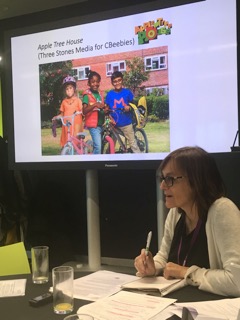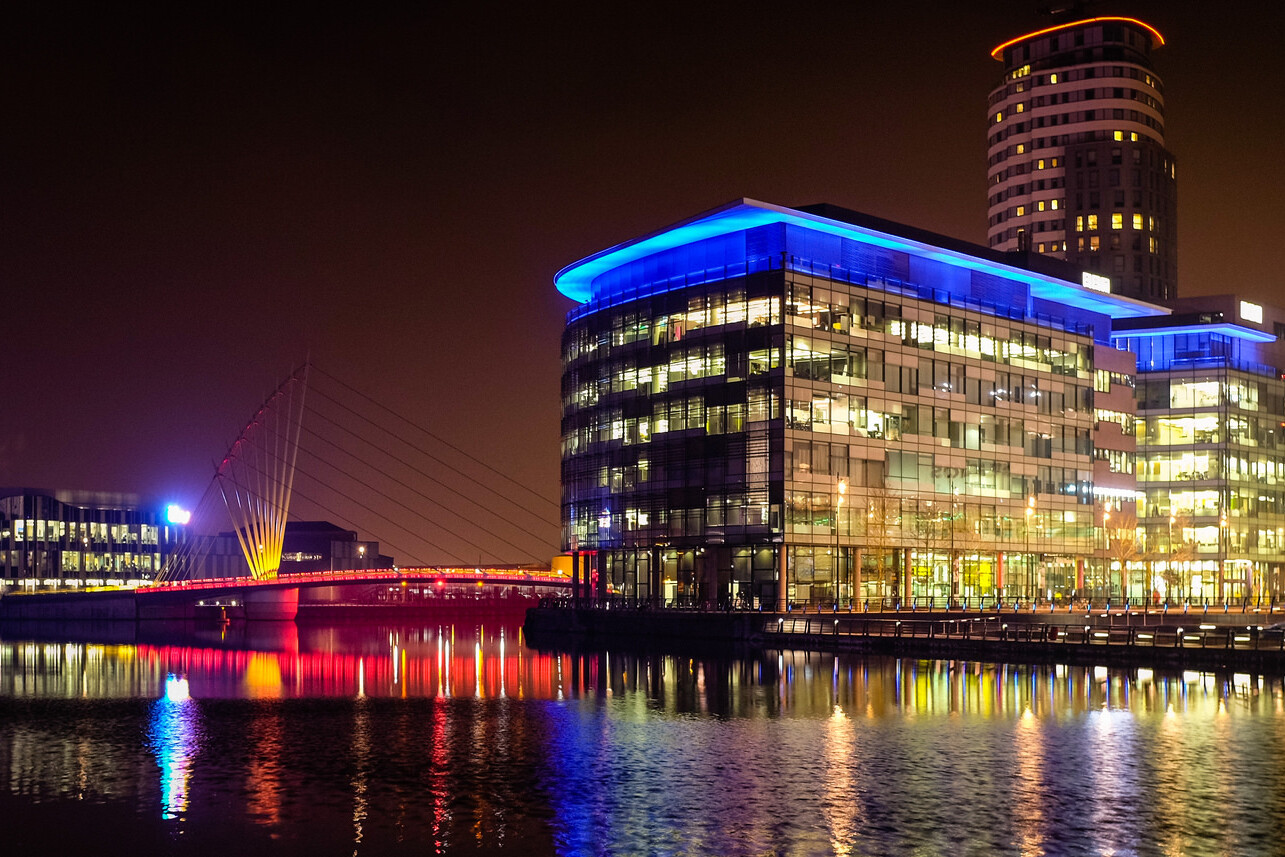In the recent years, a growth in migration has brought opportunities and challenges across Europe. Recently arrived Arabic-speaking families and unaccompanied minors have faced particular struggles in their attempt to settle and negotiate their own identities.
As misinformation spreads alongside their journey, corroborated by political arguments and bias, media can play a vital role in informing citizens about the reality of forced migration. But what can media, and in particular, public broadcasters do to face and explain the challenges that they are facing?
On Monday, 4 December, the PMA travelled to Manchester to hear more about these issues at a workshop organised by King’s College and the University of Westminster and Funded by the Arts & Humanities Council (AHRC), ahead of the Children’s Global Media Summit 2017.
The workshop

Based on the findings from three years of research, the workshop – Children’s Screen Content in an Era of Forced Migration: Facilitating Arab-European Dialogue – aimed to bring together European broadcasters, children and media experts, content producers, advocacy groups and policy makers to discuss the challenges and opportunities that arise when reflecting migration through children’s content in Europe.
Group work, short screenings, and presentations fed group discussions, attended by 30 participants including experts of the Arab media world. The workshop also explored the different ways childhood is understood in both the European and the Arab world, where adults mostly remain “leaders” of children’s lives and programming.
The group discussions, examples and feedback, showed how current content mostly feeds a narrative where children migrants are often portrayed as passive recipients of their peers’ help and compassion. Too often it seems, the programmes’ tend to victimise, rather than empower children refugees, opting for sympathy stories at the expense of optimism, growth and dialogue.
There were some examples however, of programmes bucking this trend. Participants were shown clips of content that allowed children to take an active lead in the direction of content. CBBC demonstrated an episode of ‘My Life’, which was filmed by a Syrian child while he played with friends. This and “Where in the World” allow young audiences to experience and learn about other cultures through the eyes of other children.
Hurdles and new paths
Yet despite these positive examples, participants highlighted that falling into stereotypes, flattening the topic, a lack of expertise, inherent racism within media companies and a general lack of investment in children’s content were among the main challenges faced when producing content for children.

Overcoming these hurdles is not an easy task, especially as producers struggle to find an outlet for their work. But, according to the participants, one way would be to start from the basics: by putting oneself into children’s shoes, listening more and placing their needs and views first. This goes hand in hand with recognising and representing diversity not as a disruptive force in our society, but as a natural feature of our day to day lives.
The role of public service media
Most importantly perhaps, the workshop shone the light on the role public media has in ensuring good quality content for children that have to confront themselves with migration.
As it becomes harder and harder to finance children’s content and as commercial outlets’ priorities often gravitate towards entertainment and revenue, it becomes more important than ever for public service media to invest in content that is both educational and entertaining. Public broadcasters can ensure that their content reflects the diversity of the nation they serve while ensuring that children, especially those being affected directly and indirectly by migration, find themselves reflected.
Public service media thus remains at the forefront of serving children’s needs but there is more it can do to harness its full potential and become more inclusive at a local and global level. There are plenty of opportunities out there, but will public broadcasters take up the challenges?
This workshop is part of a series. The next event will be held in Copenhagen in March, in collaboration with the International Documentary Festival Copenhagen (CPH: DOX) 2018.
You can find more information about the project and the upcoming workshop on the official website.
Header Image: Media City in Salford, the venue for the workshop. Credit: Phil Gradwell/ Creative Commons
Related Posts
13th October 2017
Exploring good PSM provision for young children in a diversified Europe
With a growth in forced migration to…
18th September 2017
Featured Event | Children’s Screen Content in an Era of Forced Migration: Facilitating Arab-European Dialogue
This free pre-summit CGMS workshop aims…

